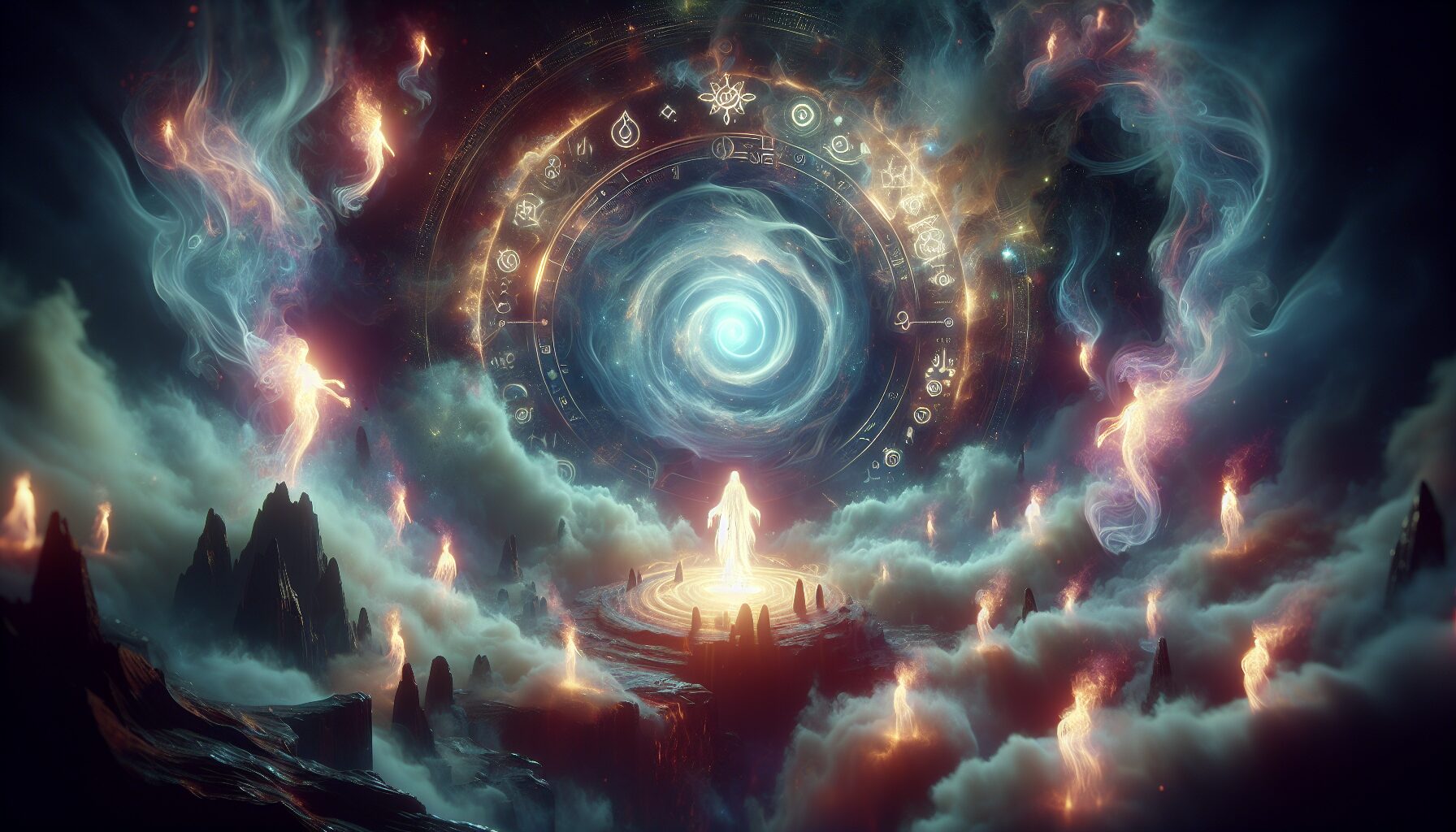Ritual of the Abyss – Embracing the Unknown
The human fascination with the unknown has been a driving force behind exploration, innovation, and self-discovery throughout history. This unyielding curiosity is mirrored in cultural rituals and practices, where the mysterious and the enigmatic are often embraced as a means of confronting the unknown. The “Ritual of the Abyss” serves as a powerful metaphor for this journey of exploration into the depths of the human psyche and beyond.
The Symbolism of the Abyss
The abyss has long been a symbol of the unknown, a void that represents uncharted territories both physically and mentally. In literature and mythology, the abyss often serves as a gateway to discovery and transformation. As philosopher Friedrich Nietzsche famously stated, “And if you gaze long enough into an abyss, the abyss will gaze back into you.” This notion highlights the deep connection between the quest for understanding and the introspective journey of facing one’s fears and limitations.
Historical Contexts of the Abyss
Rituals involving the abyss can be found in various cultures around the world. For instance, in Ancient Greek mythology, The Underworld was frequently portrayed as an abyss—a reflection of death and the unknown afterlife, epitomized by figures such as Charon, the ferryman of Hades. In a different context, medieval European traditions spoke of abyssal creatures, entities that lurked beyond the comprehension of man, serving as both a warning and a challenge.
- Ancient Greece: The myth of Orpheus traveling to the Underworld.
- Nordic Mythology: Hel, the realm of the dead, waiting beneath the roots of Yggdrasil.
- Buddhist Philosophy: The void (Shunyata) as a space of potential transformation and enlightenment.
Modern Interpretations and Practices
Today, the concept of the abyss transcends its mythological origins and finds relevance in modern practices, ranging from extreme sports to therapeutic journeys. For many, engaging in activities that involve a calculated risk or venture into the unknown becomes a personal ritual. It allows individuals to challenge their perceived limitations and explore psychological and emotional depths.
Extreme Sports and the Abyss
Consider extreme sports such as deep-sea diving or skydiving, where participants literally plunge into the depths or fall into the vastness of the sky. These activities could be seen as modern expressions of the ritual of the abyss. By willingly confronting these physical abysses, participants gain a profound sense of accomplishment and transformation.
“It’s not just about jumping into the void,” explains BASE jumper Steph Davis. “It’s about finding who you are in the moments when you’re completely present with the unknown.”
Therapeutic Rituals
Psychological practices have also drawn from the concept of the abyss. Techniques such as Jungian shadow work, which involves confronting and integrating one’s inner darkness, are rooted in the idea that facing the unknown aspects of oneself can lead to healing and self-discovery.
- Shadow work encourages exploration of repressed emotions and hidden fears.
- Therapies often use guided visualization of ‘descending into the depths’ as a metaphor for examining hidden facets of the psyche.
Conclusion: Embrace the Abyss
In embracing the abyss, humanity acknowledges the vastness of what lies beyond our knowledge and control. The ritual of the abyss is not about conquering the unknown but rather about acknowledging its existence and the ways it shapes our understanding of the world and ourselves. In doing so, it becomes a journey of personal growth and existential exploration.
As philosopher Søren Kierkegaard noted, “Anxiety is the dizziness of freedom.” To engage with the abyss is to embrace freedom, a step into realms where potential and uncertainty coalesce. The abyss, therefore, serves as both a challenge and an invitation to deeper self-awareness and transformation—an eternal cycle of facing, knowing, and growing through the mysteries that define human life.

Comments